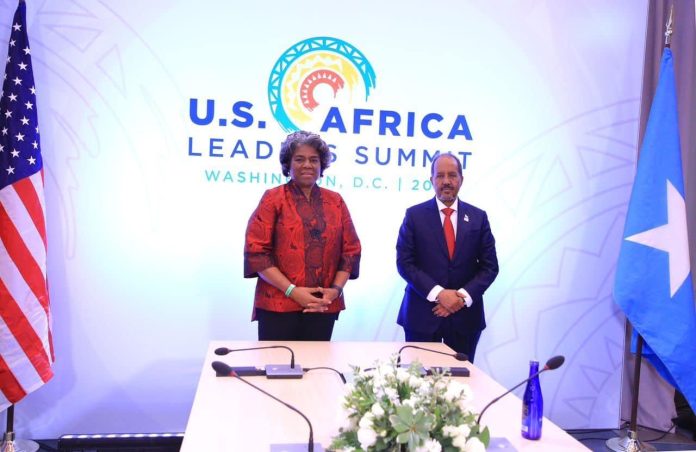At the U.S.-Africa Leaders Summit on Tuesday, senior U.S. officials—including Secretary of State Antony Blinken and Defense Secretary Lloyd Austin—met with a number of important African leaders to discuss topics relating to peace, security, and governance.
Leaders from 49 African countries as well as the African Union will attend the three-day conference hosted by the Biden administration for high-level discussions.
Hassan Sheikh Mohamud, the president of Somalia, said during the conversation about how al-Shabaab had a significant amount of authority over the country’s interior.
He declared that “Shabaab, or terrorists anywhere they are, cannot be defeated solely militarily.”
Niger, Mozambique, Somalia, and Chad are among the African nations receiving bilateral assistance from the United States, according to African Union Commission Chairperson Moussa Faki Mahamat. But he claimed that African armies continue to lack proper equipment.
When it comes to the spread of this plague, he lamented that “no one is listening to the cries of Africa.”
This week, the administration is entertaining prominent figures in an overt attempt to compete with China on the continent. The purpose is to persuade its visitors that the United States is a superior alternative for African partners.
U.S. Defense Secretary Lloyd Austin remarked, “We want to learn what’s actually essential to you.
“We want to make sure that we are taking the steps necessary to strengthen and grow your security forces, as well as assist you in developing your security architecture in ways that you believe will benefit you and undoubtedly advance regional stability.”
The continent, whose leaders frequently feel that the world’s most powerful economies have ignored them, is nonetheless very important to major world powers because of its quickly expanding population, abundant natural resources, and sizeable UN voting bloc.
As the United States adjusts its foreign policy to place more of a focus on China, which the Biden administration sees as the country’s biggest economic and military foe, Africa continues to be of crucial strategic importance.
Jake Sullivan, the national security advisor for the White House, announced on Monday that the government would commit to investing $55 billion in Africa over the following three years to address “a wide range of industries to tackle the key challenges of our day.”

